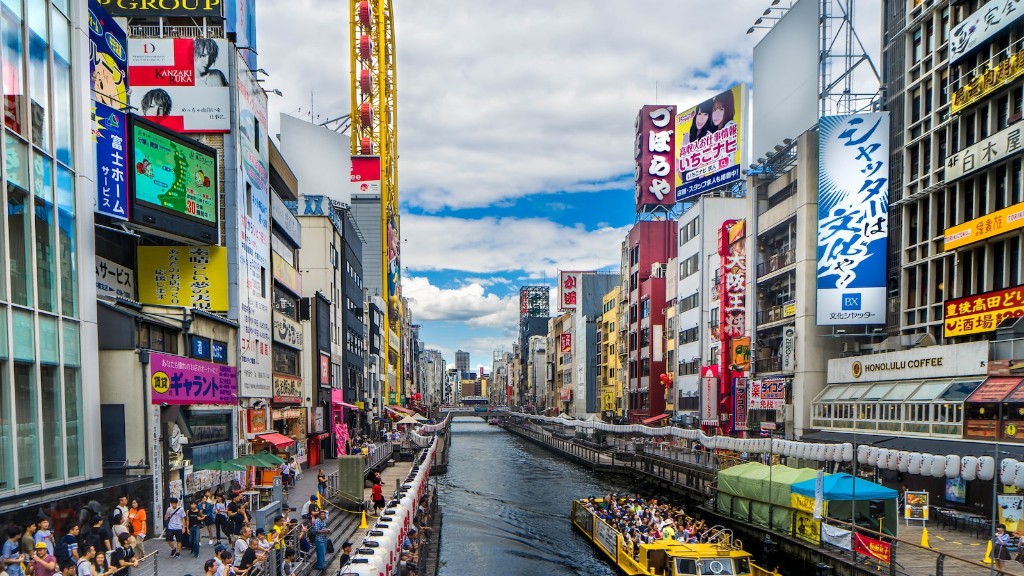As the country of Japan suffers under the strain of the Covid-19 lockdown, travel between the country’s regions has been severely restricted. The government has issued a strict policy surrounding the lockdown and as a result, travelers are facing long-term disruption as all non-essential travel has been banned. This has caused many people to feel extremely anxious about their travel plans, as all opportunities to explore new places and visit old friends have been put on hiatus.
At the heart of Japan’s lockdown policy lies the cautiousness of the government to try to contain the virus, as it has been severely affecting their population. As a result, tough measures have been imposed, including a minimum two-week quarantine for anyone coming from abroad and there is no movement allowed between prefectures.
Unsurprisingly, the restrictions have had a major effect on the already struggling travel industry, with experts warning that many Japanese airlines, and other companies, may be forced to permanently shut down in the wake of such restrictions. This means that holidaymakers who have already booked trips to Japan are likely to see their plans go up in smoke, with hotels, airports, and attractions shutting down until the lockdown eases. Furthermore, many airports have now closed completely, with flights severely reduced, making it increasingly difficult to travel within the country.
The restrictions have also had a major impact on the thriving tourism industry in Japan. Tourism was a major part of the country’s economy before the pandemic, with tourists from around the world eager to explore its unique culture, cuisine, and natural beauty. However, with people discouraged from travelling and reduced numbers of flights available, the sector has seen a sharp decline in business. This, in turn, has not only led to reduced revenue for the industry, but has also led to severe job losses as those who were employed in the sectors are now without work.
The government has imposed strict rules on those taking domestic trips. Only essential travel that cannot be postponed is now being allowed. This includes travel for medical reasons, business, and funerals. However, all other travel is not allowed. Those travelling for essential reasons will have to provide proof of their reasons for travel and will also need to fill in a health declaration form. Furthermore, all those travelling for work purposes will be expected to wear masks and maintain social distancing.
Overall, the travel restrictions imposed by Japan for the lockdown have led to a dramatic decline in the tourism industry, which has long been a driver of economic growth in the country. Not only are travellers being forced to delay their holidays, but the industry itself is suffering from reduced business and widespread job losses. As a result, the government is being urged to loosen the restrictions and provide support for the travel sector to ensure its survival.
Impact on Domestic Tourism
The travel restrictions have had a major impact on domestic tourism, as people are now discouraged from travelling anywhere outside of their region. This means that people are effectively unable to explore Japan as they once did. The restrictions have also made it difficult for those travelling for work purposes, as they now have to comply with the additional regulations laid down by the government.
Furthermore, while many countries are beginning to ease their travel restrictions, Japan is lagging behind. This means that domestic tourists are unable to take advantage of the easing regulations in other countries, as the wellbeing of the nation is of paramount importance.
The travel curbs have also led to reduced visitor numbers to many areas of Japan. Tourist hotspots such as Mount Fuji and Tokyo have seen a drastic decrease in visitor numbers, leading to soaring unemployment and a sharp decline in revenue for surrounding businesses. In addition, many people are now foregoing any type of travel due to fears of contracting the virus, adding to the woes of the industry.
As such, the travel restrictions in Japan have had a negative impact on domestic travellers, leading to reduced business for the industry, increased unemployment, and fewer opportunities for people to experience the culture and natural beauty of the country.
Impact of Japan’s Travel Bubbles
The Japanese government has recently introduced a set of travel bubbles, which will enable travellers to visit certain countries without undergoing a period of self-isolation. While this has been received as welcome news by some in the industry, many fear that the policy may simply lead to further disruption. As such, the jury is still out on the effectiveness of the policy.
For example, Japan’s travel bubbles with Thailand have caused significant disruption, as many people were not able to test negative for Covid-19 before the deadline. Those who missed the deadline were then forced to undergo a 14-day quarantine upon arrival in Japan. Furthermore, the generous visa waivers being granted by Japan to certain countries may lead to overcrowding in certain areas, resulting in increased risk of transmission.
In addition, there is a concern that the travel bubbles may be too generous. Many countries are eager to capitalise on the winding down of the pandemic, and as such may be tempted to open their borders with minimal safety measures in place. This could have devastating effects, especially for Japan, where the virus is still rampant.
Overall, the introduction of travel bubbles has been met with mixed reactions. While it could provide a much-needed lifeline for Japan’s travel industry, there is also a danger that such policies could lead to an increase in the number of cases, making it necessary to clamp down on further restrictions.
Betterment of Medical Facilities
The prevalence of Covid-19 in Japan has also led to calls for the government to improve its medical facilities. While Japan has traditionally had some of the best healthcare systems in the world, the pandemic has exposed various weaknesses in the system. As a result, many are now calling for the government to invest heavily in improving its medical services.
This includes increasing the number of intensive care beds, as many hospitals have had to turn away patients due to a lack of capacity. The government is also being urged to increase the number of medical professionals, such as doctors and nurses, as the pandemic has exposed the long-term staff shortages in the healthcare industry. Furthermore, measures need to be taken to improve the availability and accessibility of medications and treatments, as many have been in short supply in recent months.
The government has also been urged to invest in research and development to find new and innovative ways to improve its medical services. This includes developing new ways to detect the virus, such as rapid testing, and also finding ways to reduce the transmission of the virus. In addition, the government should invest in public health education, so that people are better equipped to protect themselves.
Overall, the Covid-19 pandemic has exposed the weaknesses in Japan’s healthcare system, sparking calls for the government to invest heavily in improving its medical services. This includes increasing the availability of beds, medics, and treatments, as well as investing in research and development to find new and innovative ways to tackle the virus.
Social Inequality
One of the more concerning effects of the travel restrictions has been the increasing inequality in society. This is because those who can afford to travel are still able to do so, while those who are financially constrained are being forced to forgo their plans. This has led to a two-tier system, where those who are well-off can still enjoy the freedom of travel, while those in more difficult economic circumstances are forced to stay at home.
Furthermore, those who are able to travel are having to endure long waits in airports and other public places. This has caused immense stress and anxiety for many, as their freedom to explore is suddenly limited. What’s more, those who are able to travel may end up suffering from the strain of waiting in long queues or being crammed into crowded transportation systems.
In addition, those who cannot afford to travel are being forced to stay put and rely on other sources of entertainment, such as online streaming services. However, this can be both costly and time consuming, and is often not much of a substitute for getting out and exploring the world. As such, the travel restrictions have caused further inequality in society, as those who are well-off are able to take advantage of the situation, while those who are not as well-off are being forced to endure long and arduous waits.
Overall, the travel restrictions imposed by Japan have led to an increasing sense of inequality in society, as those who can afford to travel are able to do so, while those in more difficult financial circumstances are being forced to stay at home. This has caused immense stress and anxiety for many, as their freedom to explore is suddenly limited.
Future Outlook
Overall, the future of Japan’s travel industry remains uncertain, as it is unclear when the travel restrictions will be fully lifted. This uncertainty has caused immense anxiety and dismay among those who rely on the industry for their livelihoods. As a result, experts are urging the government to provide more clarity on the situation, so that businesses and travellers can begin to make plans for the future.
Furthermore, the government must also find ways to help those in the travel industry who have been affected by the pandemic. This includes providing financial support for those businesses that are struggling, as well as providing a safety net for those who have been laid off due to the restrictions. This will not only help to keep the industry afloat in the short-term, but could also give those who rely on the industry a sense of hope for the future.
In addition, many believe that the health crisis has created an opportunity for Japan to reimagine its travel industry. This could include finding new ways to reduce the spread of the virus, such as investing in rapid testing, as well as





